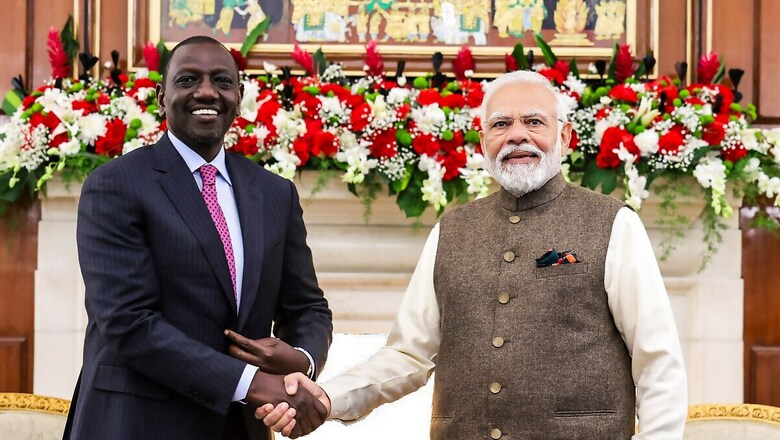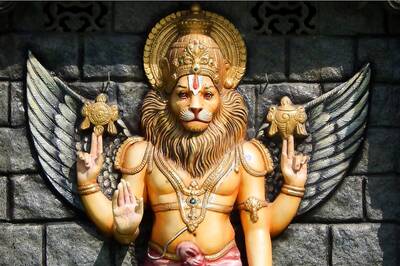
views
Why should Kenya be forced to trade in dollars with India and pay heavy exchange costs when it can be done in Indian rupees, Kenyan President William Ruto said in an exclusive interview with Firstpost, pitching for trade that is not dependent on one currency. “We have a lot of trade… we have commodities that we buy in Indian rupees. Why should we change Kenya shilling to US dollar, from US dollar to Indian rupees? Why don’t we just agree that we can do trade between Kenya in shillings and in rupees?” he said.
Ruto, who was on a three-day visit to India, said African nations lose $5 billion every year in just exchange rate losses.
“We need to neutralise currency so that we concentrate on doing trade rather than on currency exchange. We lose about $5 billion dollars every year in Africa just in exchange rates. So, we are saying we want trade, we want commerce, we want transactions to be currency-neutral for us,” he said amid the global debate on de-dollarisation.
Ruto said the issue also came up in his talks with Prime Minister Narendra Modi. “The conversation I was having yesterday with Prime Minister Modi is that even the (Line of Credit) facility that will be extended to Kenya, the $250 million facility, we want it in Indian rupees. Why should we go and look for dollars when we can have the facility in Indian rupees,” he said.
India had on Tuesday announced the $250 million line of credit to Kenya for modernisation of its agricultural sector.
Talking about Africa’s changing role in the world, Ruto said: “We are changing the narrative for Africa, and we are repositioning Africa as an investment destination, not as a destination for aid or a destination for donations.”
“There is an African proverb that says that until the lion learned to write his own story, all stories glorified the hunter because he was the one writing. So, this time around, we’re going to write our own story. For a long time, people wrote stories about Africa, and they said Africa is a place of disease, poverty, conflict, problems. We’re telling them Africa is much more than that.”
Africa, he said, is moving from being a ‘resource’ to being an investment. “We have supported, for example, Europe. We have supported other regions. We’ve given them our raw materials and we have been very faithful. We have also bought their finished products. It is time that we exchange, time they buy our finished product, and they export to us their technology and we agree on an investment program.”
The Kenyan President thanked India for being instrumental in that change. “I did commend my brother Prime Minister Modi, for his efforts in championing the place of Global South and specifically the place of Africa in the global geopolitics. It is here in India that Africa got the opportunity to be a permanent member of the G20,” Ruto said.
Hoping to emulate the self-reliant ‘India model’ for Kenya, Ruto said: “We cannot continue to import stuff. And in fact, that’s something Prime Minister Modi believes. In fact, he has changed India from a net importer of rice to a net exporter of rice today. And that is the mission I have for Kenya.”
The Kenyan leader also commended PM Modi’s dedication to public service. “I was asking him… well, it’s tough doing things for 50 million people, I don’t know how he does for 1.4 billion. It’s quite something. He gave me some tips, but they are not to be shared with the media.”
Hailing the large and active Indian diaspora in Kenya, Ruto said the community is now Africa’s 44th tribe. “The Indian diaspora are a great resource to Kenya. They bring on board the diversity of Kenya and today they stopped being Indians. They are now Kenya’s 44th tribe and they are perfectly Kenyan with us. And they’ve been a great bridge between India and Kenya.”

















Comments
0 comment